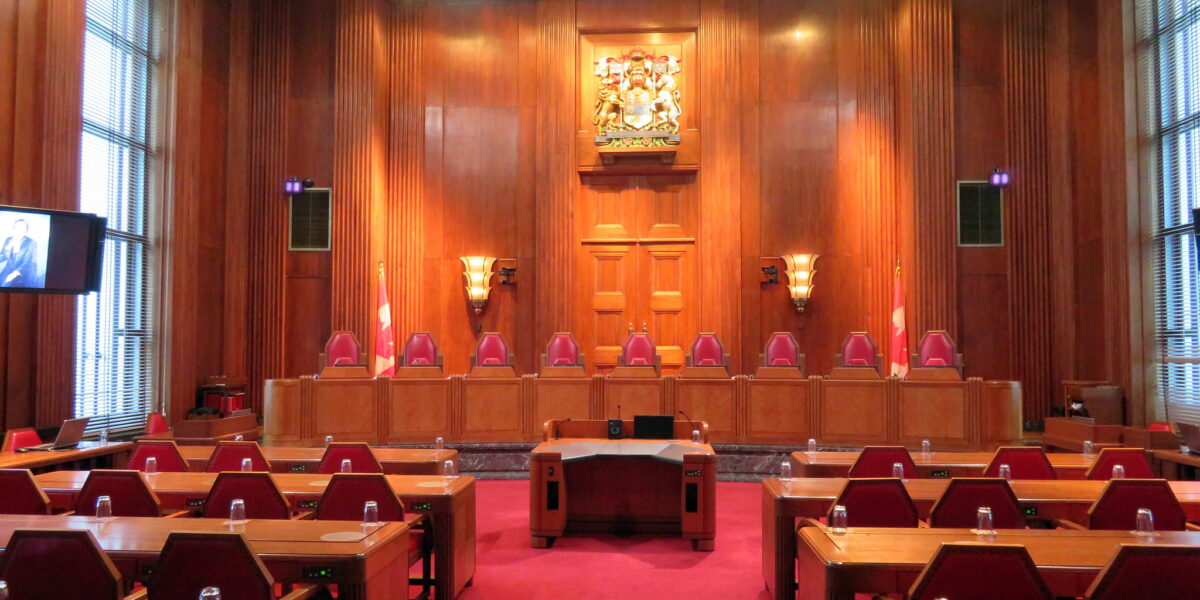The chief justice of the Supreme Court of Canada Richard Wagner recently said that the federal government’s judicial appointment process is alarmingly slow. Some alleged criminals are walking away without trial because there aren’t enough justices to hear cases in a timely manner, he says, and society will suffer as a result.
Earlier this year, Wagner wrote a letter to Prime Minister Justin Trudeau “to alert him to the serious consequences of this lack of appointments. and to press him to speed up the process. He is hoping Trudeau and Justice Minister David Lametti, who appoints judges, will push through well-qualified appointments soon.
This situation gives rise to some important questions: What is justice and how does it protect society? And why is it necessary to give judges a reasonable time to reach the right decision and deliver justice?
Why is the chief justice so concerned about the delay in new appointments of judges?
The popular depiction of Justitia, the Roman goddess, representing the virtue of justice, was often portrayed as blindfolded, with scales in one hand and a sword in the other. It’s a powerful metaphor for the idea that justice is blind, shouldn’t be biased, and that it’s delivered without regard to one’s personal appearance, status, or outside influences.
In the Judeo-Christian-Islamic framework based on Abrahamic mythology, God is the ultimate judge, and everyone will be answerable to Him one day for their actions. Here on Earth, however, He has delegated the right to judge crimes to the state. The state appoints the most competent and honest judges to deliver justice, which protects society by maintaining public safety, enforcing laws, and securing people’s rights.
Judges need reasonable time to study a case’s history, understand all the circumstantial evidence, refer to similar cases in the past, and examine the case from every possible angle and perspective. They have to review and counter every bit of evidence that comes forward, from videos to lab results, witness testimonies, reports, and photos.
There are 88 vacancies out of 995 full-time spots for judges on federally appointed courts, which include the top trial courts of provinces that handle the most serious criminal and civil cases.
There are nine vacant positions of judges in different categories at the Supreme Court, 11 vacant positions in Alberta, and 13 vacant positions in B.C. The Montreal district of the Superior Court of Quebec, one of the busiest in the country, has been without a chief justice for 16 months. Ontario’s Superior Court of Justice is short 19 judges, according to the federal government’s website. Just as worrying, 73 of the 278 total judges in the criminal system are semi-retired and work on a part-time basis.
Wagner says that a democratic society governed by the rule of law should ensure that criminal cases come to trial within a reasonable delay. It’s not fair for victims and witnesses to wait many years for a trial. It takes time and money to keep a case open for a long time, most people can’t afford that and don’t like it. In fact, it creates a lot of frustration for the public. Justice delayed is justice denied.
The right to be tried within a reasonable time is protected by the Charter of Rights and Freedoms. The Jordan framework provides a clear timeline that determines whether or not a delay is reasonable – from charge to completion, a delay for criminal proceedings is presumed unreasonable after 18 months for cases tried in provincial court, and 30 months for cases tried in the Superior Court. No matter how serious a charge is, it must be dropped if the delay exceeds the time limit, after subtracting for delays caused by the defense and considering any exceptional circumstances involved.
The shortage of judges is leading to delayed prosecutions and an increased risk of violating time limits on criminal proceedings. The appointment of judges is a well-defined process, but it moves to the political stage, in which the qualified and highly qualified candidates are screened by an appointment adviser to Mr. Lametti, and then by the office of the Prime Minister. Filling up all vacant positions is urgent. and if there are any doubts that political influence can be used in the appointment of judges by the government, they should be removed. The selection of judges is a serious responsibility, it should be done with utmost care, best effort, and fairest intentions.



